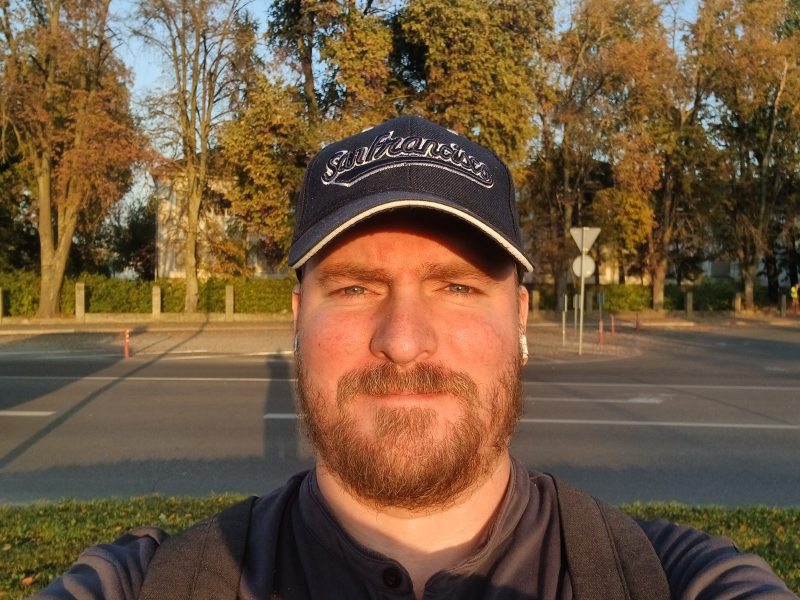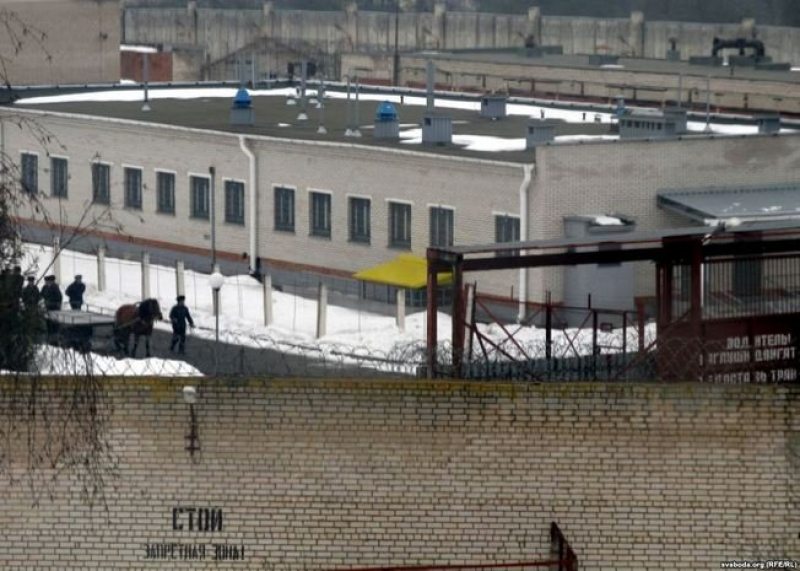"When the security forces found that I had epilepsy, they reduced the power of the taser." The story of a former prisoner
In the autumn of 2023, security forces broke into the apartment of Kiryl Ivanou from Minsk. During his detention, the man, a patient with epilepsy, was severely shocked with a stun gun. A Minsk resident was convicted for a comment about a border guard officer and sentenced to two years of home confinement. While he was serving his sentence, a message was found in the man's phone, where the Minsk resident expressed support for Ukraine. A lot of pressure was put on Kiryl, and he faced threats of being sent to a penal colony. Because of the threat of danger, the man left Belarus.
Kiryl told Viasna about the Russian and the USSR flags in GUBOPiK office, about being severely beaten in the police mini-bus, the guards forbidding him to explain in prison where he got bruises all over his body, and inspectors controlling his home confinement seeking to send political prisoners to a penal colony.

- Kiryl Ivanou. Photo from the man's personal archive
The Minsk resident commented a lot on the Internet even before the events of 2020. Kiryl was prosecuted for a comment left in 2021 on a Telegram channel Mustache of Lukashenka under a video about the head of the communications department of the State Border Committee.
"Shut up, degenerate." Detention
Two years after writing the comment, in October 2023, masked men came to Kiryl's apartment. The employees of Main Directorate for Combating Organized Crime and Corruption (GUBOPiK) broke down the door to the vestibule at seven in the morning and began to break down the apartment door.
"I decided to open the door for them. Five people in full armor broke into my place. The first one had a shield and pointed a gun at me. They immediately put me on the floor, hands behind my back. No one introduced themselves. For any word addressed to them, I received a kick in the legs and a 'shut up, degenerate.' I told them that I would not sign anything until the witnesses came. One of the security officers took me to the bathroom and said: 'Do you even understand who came to you?' And then he started beating me up severely. He hit my face and stomach with his hands.
It took me a very long time to find out what the problem was. In response, one of them asked: 'Did you write different shit on the Internet?' Only in GUBOPiK's office, during the interrogation, I was given a specific reason."
"You like protesting?" Kicked and tased in a mini-bus
After the search, the security forces put Kiryl on the floor of a mini-bus, where they began to severely kick him and tase him. The man was asked: 'You like to protest?' and immediately kicked him in the face.
"The security forces immediately asked if I had chronic diseases. When they found out that I had epilepsy, they reduced the power of the taser.”
The Russian and the USSR flags hung in the office. Interrogation in GUBOPiK
Then Kiryl was taken away for interrogation to GUBOPiK. Because of epilepsy, it is difficult for the man to walk the stairs.
"I was handcuffed and asked them to uncuff me so that I could hold on to the railing. In response, the I was hit very hard twice in the thigh. It was the most painful blow, and a big bruise on the whole thigh remained."
The department had the Russian and the USSR flags, as well as portraits of Stalin and Dzerzhinsky.
"It made me very sad. They are not Belarusians."
Temporary detention facility at Akrescina
After a brief visit to the Investigative Committee, Kiryl was taken to the temporary detention facility at Akrescina.
"During the examination, I undressed and the staff of the detention center saw that I was almost blue all over. They immediately asked where these bruises came from. I said that it was their colleagues who worked really hard."
First, Kiryl was placed in a regular cell for several days, after which he was transferred to a punishment cell.
"There were 10 of us in a single cell, and all of us were political prisoners. I also spent three days there. There was so little space that not everyone could fit on the floor."
"In Žodzina, you will say that no one beat you up"

- Žodzina prison No.8. Photo by Ales Lapitski
Before being sent to the Žodzina prison, the guards saw Kiryl's bruises and told him not to say on arrival that he had been beaten by security forces. The prison does not accept prisoners in a beaten state, the source says. Conditions in the temporary detention facility at Akrescina were much worse than in Žodzina, and Kiryl decided to obey the guards not to be sent back. The Minsk resident spent three months in custody before the trial.
"Ordinary convicts had a neutral attitude towards political prisoners. 'Are they criminals? They found wrong people to put to prison,' they said. They were mostly shoplifters and others. In general, good people with bad deeds."
"I couldn't even go to a store." Home confinement
The man was sentenced to two years of home confinement and was registered at the inspection. His inspector was Illia Andreyevich Shalik. The name of the security officer was included in the Black Book of Belarus, and the inspector was very proud of it, Kiryl says.
Every Monday Kiryl came to the inspection to report. In total, about 130 political prisoners came with him.
"We all sat down in the assembly hall of the police station, and we were each called by our last name. You come up, sign your name, and sit down. Until everyone is named, you're not going anywhere."
The inspection gave Kiryl three weeks to get an official job. According to former political prisoners, employers are very reluctant to take on new employees who are in home confinement. The interlocutor was lucky enough to get a job in a private company.
"From 17 to 18 o'clock I had to get home in time. And another hour was allocated for leisure. At the same time, I had no right to go anywhere on the way home. I couldn't even go to a store. The inspector was watchful in this regard," says Kiryl.
"What the f*ck are you thinking! You think the Russian army are a bunch of jerks?" Departure from Belarus
Kiryl worked this way for almost six months. Besides the Monday meetings, former prisoners were regularly brought together on Thursdays for lectures from the Red Cross and discussions on various social issues.
At one of these meetings, everyone was told to go, except for the political prisoners.
"We were ordered to hand over our phones for a check. They checked them. Everything seemed to be fine. And in the evening I got a call and was called to the inspection the next day. There they began to ask me questions about politics: where I left comments and what the articles were about. Together with the old inspector, a new one interviewed me, also Illia Andreyevich. This was very nasty. He began to ask about relatives. And my father is a former political prisoner, and my brother is in Poland. When he heard about it, he began to sneer at me and decided to check my phone. And there he saw on Facebook a yellow-blue profile picture of my great-aunt from Ukraine. He started to read our messages. And there I spoke about the crimes of the Russian army:
'The Russian army kills and rapes children. Where is their church?'
'The church covers these jerks.'
And the inspector yelled at me: 'What the f*ck are you thinking! You think the Russian army are a bunch of jerks? You like to protest?"
Inspectors began checking Kiryl on CCTV footage. They were finding out if he had participated in the protests. They also ordered him to come to report every day. Once a day, they took turns checking each of Kiryl's social media pages using special bots. We were looking for comments and likes, the source says.
"Right after that conversation, I decided to run away, because it wouldn't have ended well. The inspectors directly threatened me that I would go to a penal colony. For a short time, while I was preparing to leave, I came to report to them every day."
As a result, Kiryl left Belarus and is now building a new life in one of the European countries.

















